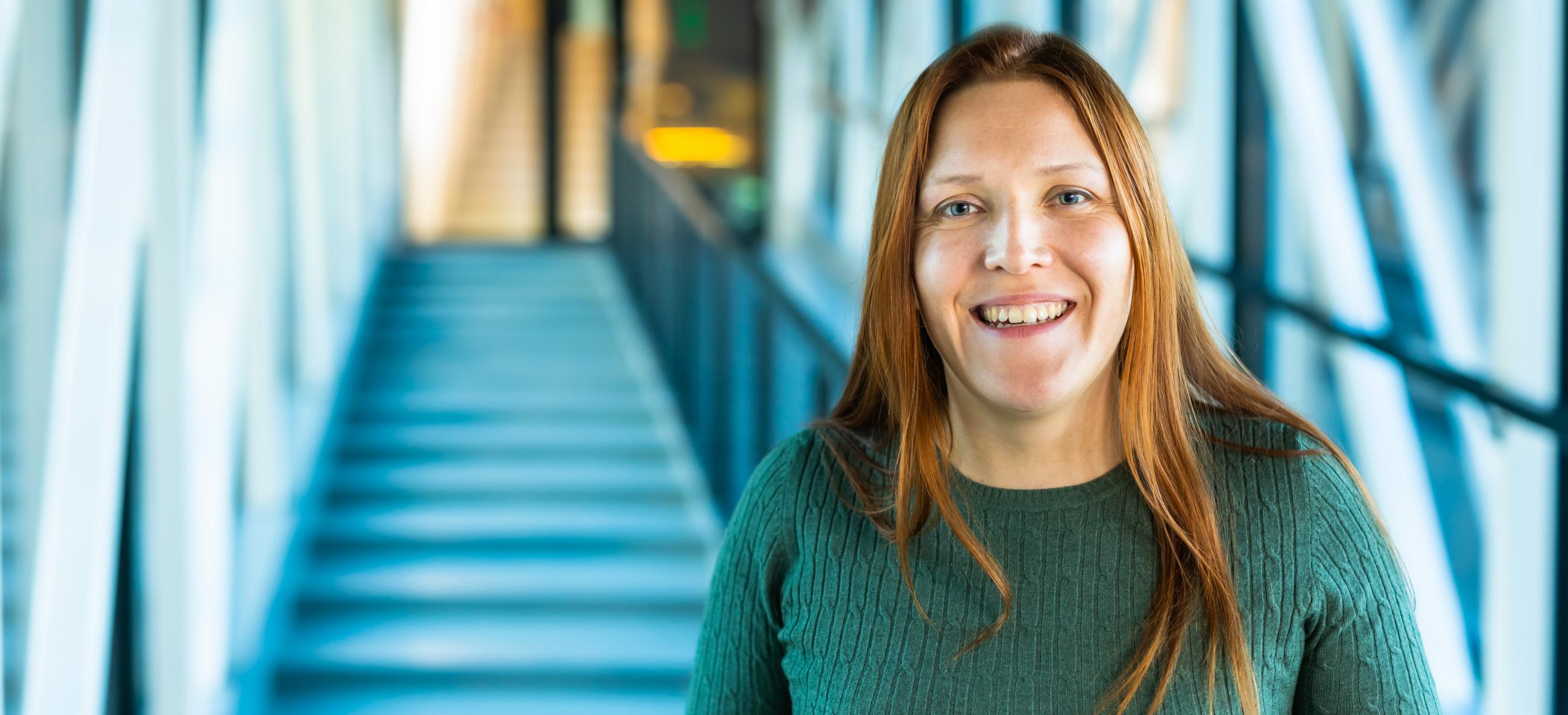Here are 5 tips from Jana Paju on writing your doctoral thesis
Doctoral student of the School of Natural Sciences and Health Jana Paju defended her doctoral thesis in physics entitled ‘Generation and Development of Damage of Plasma Irradiated Tungsten Materials Due to Synergistic Effects’ in September. We asked Jana what the process of writing her doctoral thesis was like.

How did you come up with this topic during your studies?
The hands-on approach required for experimental physics has always suited me well. When I was studying for my Bachelor’s and Master’s degrees, I spent a great deal of time writing lab manuals, both for work and my studies and theses.
I actually started my PhD studying diffusion, but when a position became available in the plasma work group, I changed subjects. I was presented with an opportunity to investigate the changes in materials caused by plasma irradiation. I was able to take a closer look at fusion too, a process which can be described as the sun’s power plant and the basis for life on earth. It has always struck me as amazing and awe-inspiring.
Writing a doctoral thesis is a huge task and definitely needs constant self-motivation. What’s your trick? How were you able to consistently work on it to achieve a successful final result?
You will definitely have an easier time writing a doctoral thesis if you’re more involved in university life. Having spent most of my prolonged studies working elsewhere certainly hindered my progress.
Here are five tips to help you successfully achieve your goal:
1. Find a supervisor who can motivate and support you.
2. Don’t let too much time pass between working on the same subject – otherwise you have to start each time with a reminder.
3. Don’t bite off more than you can chew – break the process down into short milestones, such as a page at a time. Even if you only set a goal of writing one page, you might still end up writing a page and a half just to complete the thought.
4. You must also be prepared for the possibility that you may only be able to finish half a page over several days if the topic becomes very fact-intensive.
5. Don’t be afraid to ask your supervisor ‘silly’ questions. You might end up seeing things from a completely different perspective.
Please describe a memorable or funny event that happened while you were writing your thesis.
Since the work involved studying plasma-irradiated test specimens, irradiation obviously had to be involved. A laboratory day is sacred, regardless of whether there is a celebration in the building. So, the entire research team has disassembled and reassembled the plasma chamber together and taken ‘shots’ (i.e. applied plasma pulses to the material) while wearing formal attire.
How is your research going to change the world?
Ultimately, I hope my research can help bring us closer to producing energy from nuclear fusion reactions and solving the energy crisis. While my efforts to study plasma-irradiated materials are unlikely to accomplish this directly, the method I used in this research for measuring electrical conductivity, if further developed, may be able to help assess the condition of materials in contact with plasma in the future and support the deployment and maintenance of this technology.
How well are the voices of scientists and young researchers heard in our society?
This is a very complex subject. On the one hand, it seems like researchers are being heard – there are many initiatives that popularise science and allow researchers to talk about their fields and work. As a result of the current pandemic, issues which have not been so prominent in the past have become more visible to the public. So, the importance of both medicine and the natural and physical sciences has become more apparent.
On the other hand, when considering society at large, I am not sure that the voice of scientists is heard everywhere, as more science-based decisions could be made. In general, more could be done to develop people’s critical thinking, scientific literacy and ability to search for and process information. Everyone could be a bit more of a scientist.
What are the most important values and beliefs that you live by?
Honesty, curiosity and ambition. Being able to see the beauty in the world without being conceited is essential.
Please tell us about a book that you recently read and would recommend to others. Why would you recommend it?
Currently, I'm reading A. Makarenko’s The Pedagogical Poem. Among the many messages in there, trusting people and letting them take responsibility is what resonated with me most. This is something we generally need more of.